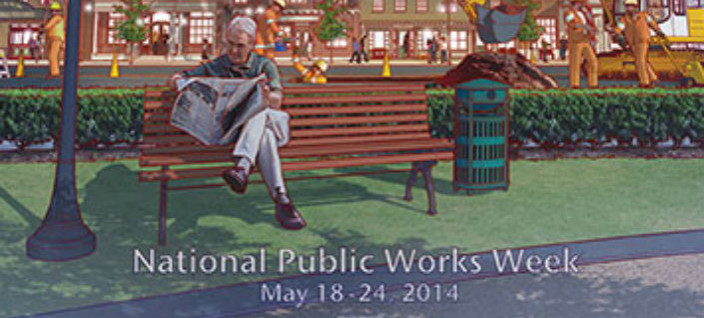Since 1960, the American Public Works Association (APWA) has sponsored National Public Works Week. Across North America, organizations across the US and Canada use this week to energize and educate the public on the importance of the contribution of public works to their daily lives: planning, building, managing and operating the heart of our local communities and building the quality of life.
This year’s theme “Building for Today, Planning for Tomorrow” represents the classic idea of stewardship embodied by the profession of public works and the professionals that practice it. This motto recognizes that what we do today is vital to a sustainable and vibrant tomorrow. Public works plays a key role in the planning, building and maintenance of infrastructure projects in their communities that will allow future generations to enjoy a higher quality of life.
Instituted as a public education campaign by the American Public Works Association (APWA) in 1960, NPWW calls attention to the importance of public works in community life. The Week seeks to enhance the prestige of the often-unsung heroes of our society-the professionals who serve the public good every day with quiet dedication.
APWA encourages public works agencies and professionals to take the opportunity to make their stories known in their communities. Over the years the observances have taken many forms, including parades, displays of public works equipment, high school essay contests, open houses, programs for civic organizations and media events. The occasion is marked each year with scores of resolutions and proclamations from mayors and governors, as well. Some special highlights of NPWW include a United States Senate resolution affirming the first National Public Works Week in 1960, letters of acknowledgment from Presidents Dwight Eisenhower and Lyndon Johnson, and a Presidential Proclamation signed by John F. Kennedy in 1962.
National Public Works Week is observed each year during the third full week of May. Through NPWW and other efforts, APWA seeks to raise the public’s awareness of public works issues and to increase confidence in public works employees who are dedicated to improving the quality of life for present and future generations.

